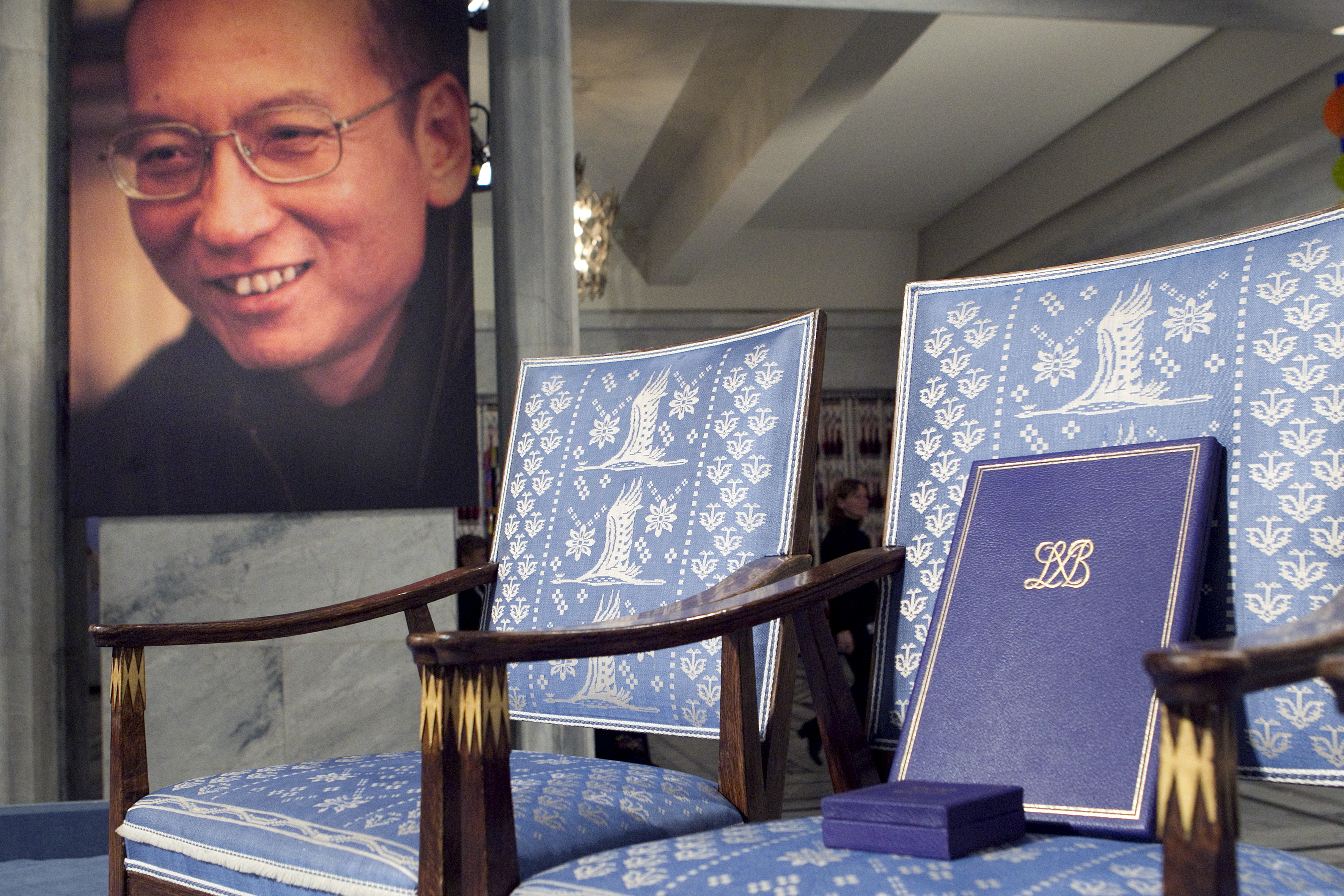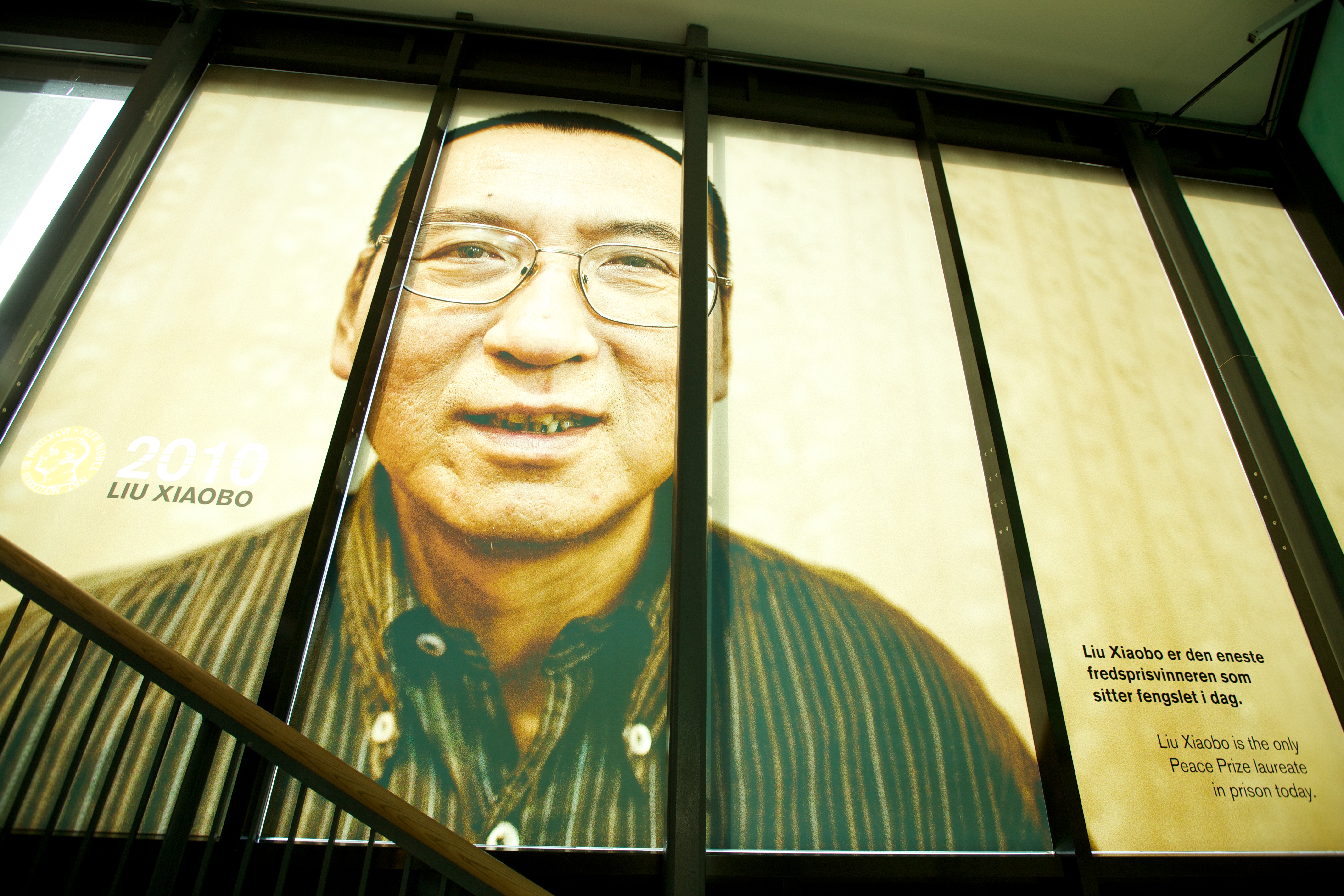Liu Xiaobo, China’s most famous political prisoner and Nobel Peace laureate, has died at the age of 61 on Jul 13.
The Chinese intellectual and activist is the first Nobel peace prize winner to die in custody since German pacifist Carl von Ossietzky, the 1935 recipient, who died under surveillance in 1938 after years confined to Nazi concentration camps.
Liu was diagnosed with late-stage liver cancer in May, while serving an 11-year sentence for his involvement in a pro-democracy manifesto called Charter 08 that called for an end to China’s one-party rule.
He was granted medical parole in June and moved to a hospital in the northeastern province of Shenyang.
A largely unknown figure in his home country due to heavy-handed suppression of political dissent, Liu was a democracy icon outside China for nearly three decades. Here are some of his famous words:
1. "I have no enemies and no hatred."
In 2010, Liu was awarded the Nobel peace prize for his “long and non-violent struggle for fundamental human rights in China”. He was the first Chinese person still living in the country then to receive a Nobel award of any kind.
He was represented at the award ceremony by an empty chair, which became a powerful symbol of his struggles in China.
 The empty chair with a diploma and medal that should have been awarded to this year's Nobel Peace Prize winner Liu Xiaobo (portrait l) stands in Oslo City Hall on December 10, 2010. The head of the Nobel committee placed this year's peace prize on an empty chair as Beijing raged against the award to dissident Liu Xiaobo, who is languishing in a Chinese prison cell.(Source: Junge, Heiko/AFP/Getty Images)
The empty chair with a diploma and medal that should have been awarded to this year's Nobel Peace Prize winner Liu Xiaobo (portrait l) stands in Oslo City Hall on December 10, 2010. The head of the Nobel committee placed this year's peace prize on an empty chair as Beijing raged against the award to dissident Liu Xiaobo, who is languishing in a Chinese prison cell.(Source: Junge, Heiko/AFP/Getty Images)
His lecture, which was read by Norwegian actress and director Liv Ullmann, was the statement he had prepared for his 2009 trial. The statement became famous for his description of his state of mind: “I have no enemies and no hatred.”
"Hatred can rot away at a person's intelligence and conscience. Enemy mentality will poison the spirit of a nation, incite cruel mortal struggles, destroy a society's tolerance and humanity, and hinder a nation's progress toward freedom and democracy. That is why I hope to be able to transcend my personal experiences as I look upon our nation's development and social change, to counter the regime's hostility with utmost goodwill, and to dispel hatred with love."(Source: I Have No Enemies: My Final Statement)
2. "The Internet is God’s present to China".
"But now the Internet connects the whole world; with a computer, my personal information space has expanded on a scale previously unimaginable. It has given me access to information as well as connecting me to the outside world. As for the public sphere, the Internet provides an information channel that the Chinese dictators cannot completely censor: it allows people to speak and communicate and it offers a platform for spontaneous civilian organisations. Ever since China entered the Internet era, civilian voices have the sort of technical support that is difficult to block completely."(Source)
Liu was highly impressed by the democratizing effects of the Internet and social media.
Mao Ze Tong’s poetic imagery “a spark can lead to a prairie fire” is apt when used to described the power of social media. Ironically, this present was also what caused him to be incarcerated for the last time.
3. “Modern China’s tragedy lies in its godlessness.”
"The greatest tragedy in modern China is that political researchers and practitioners have lost their religious ethos and moral values. The contemporary society has no statesmen, only politicians. In addition, religion has also lost its compassion for the social and public sector. (Source: Figures That Changed China, Hua Hong Zheng, 2013 )"
Liu took an interest in religion, especially theology. Having lived in a society in which the majority worship money and power, he attributed the moral panic (if not moral decline) he saw to the decline of faith.
4. "China needs at least 300 years of colonisation".
"300 years of colonisation. It took Hong Kong a hundred years to become what it is today; (Mainland) China is bigger, of course it'd take at least 300 years of colonisation to transform itself into what Hong Kong is like today. I doubt 300 years would be enough." (Source: Hong Kong JieFang Yuebao, Dec 1988 edition)
Out of all the things Liu said, this has gotta be the most provocative.
It’s odd to hear a liberal scholar fully subscribing to the belief that colonisation fulfills a civilising mission.
He compared mainland China to Hong Kong in a 1988 interview, opining that since Hong Kong took 100 years of colonization to turn into what it was like, it would take at least 300 years for mainland China to transform itself into an advanced society like Hong Kong.
You can imagine the reaction from relevant authorities.
5. "Patriotism is not noble."
"Unless we faced a crisis of our national sovereignty due to foreign invasion, I don't think 'patriotism' is a noble term. It is actually the opposite. In times of peace, it is either despicable politicians or raving lunatics who congregate under the banner of patriotism. " (Source: A Single Blade and Toxic Sword: Critique on Comtempory Chinese Nationalism, 2006)
Liu felt that the rising nationalist sentiment in China was exclusionary and dangerous. He was particularly critical of the Chinese brand of patriotism as it was conflated with loyalty to the Communist Party.
Although he was hailed as a human rights hero in the West, Liu is regarded as a ingratiating traitor by many Chinese citizens, mostly due to their perception of his seemingly unpatriotic sentiments.
A short biography: Liu Xiaobo
A prominent independent intellectual in China, Liu is a long-time advocate of political reform and human rights in China and an outspoken critic of the Chinese communist regime.
He is a drafter and a key proponent of Charter 08 - a petition which called for democratic reforms in China.
Born on December 28, 1955 in Changchun, Jilin, Liu received a BA in literature from Jilin University, and an MA and PhD from Beijing Normal University, where he also taught.
In April 1989, he left his position as a visiting scholar at Columbia University to return to Beijing to participate in the 1989 Democracy Movement. After the crackdown on June 4, Liu was held in prison until January 1991, when he was found guilty of "counter-revolutionary propaganda and incitement" but exempted from punishment.
In 1996, he was sentenced to three years of Re-education-Through-Labour on charges of "rumor-mongering and slander" and "disturbing social order" after drafting the "Anti-Corruption Proposals" and letters appealing for official reassessment of the June Fourth crackdown.
On December 8, 2008, Liu was detained by the police, and on December 25, 2009, he was found guilty of "inciting subversion of state power" and sentenced to 11 years in prison.
Source: Nobel Prize website
Top photo from Getty Images
[related_story]
If you like what you read, follow us on Facebook, Instagram, Twitter and Telegram to get the latest updates.
